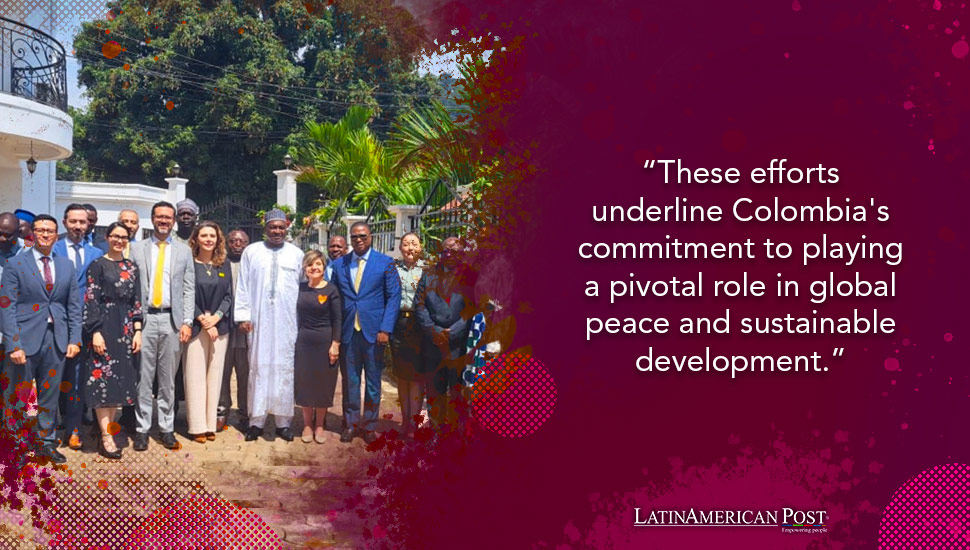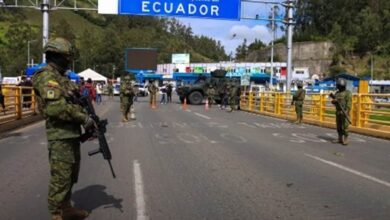Colombia’s African Outreach: A Strategic Move Towards Global Cooperation

Colombia’s recent diplomatic ventures into Africa, fostering initiatives on peace, transitional justice, and sustainable agriculture, are commendable but must focus on practical implementation to drive change.
Colombia’s government has recently made a commendable stride in international diplomacy by engaging several African nations in initiatives ranging from peacebuilding to sustainable agriculture. This move, part of Colombia’s broader Africa 2022-2026 strategy, which aims to strengthen diplomatic ties, promote economic cooperation, and share Colombia’s experiences in areas like peacebuilding and sustainable development, represents a proactive approach to global cooperation and development. However, while the agreements signify a positive step towards fostering international relations and enhancing development, the real challenge lies in their practical execution and the tangible benefits they must deliver.
Colombia’s Diplomatic Tour: Strengthening Global Ties
During the second diplomatic visit to the continent in the last two years, a delegation led by the Colombian Presidential Agency for International Cooperation (APC Colombia) visited Ghana, Kenya, and Cameroon. The tour resulted in the consolidation of nine initiatives focused on diverse areas such as peace, justice, and the reintegration of combatants. These efforts underline Colombia’s commitment to playing a pivotal role in global peace and sustainable development.
The APC Colombia outlined several critical achievements from the trip, including signing a Memorandum of Understanding with Ghana to enhance tourism and culture and launching the ‘Power of Data’ initiative in Kenya to leverage data for sustainable development. In Cameroon, discussions revolved around peacebuilding practices, leading to introducing a peacebuilding cooperation program from Colombia to the world. This program aims to strengthen women’s economic autonomy, supported by the “Free and Productive Woman Fund.”
Such initiatives are crucial not only for advancing Colombia’s foreign policy but also for promoting South-South cooperation—a framework for mutual support and development between developing countries. Eleonora Betancur, the director of APC Colombia, emphasized the importance of these projects for mutual development, highlighting that they are not just about Colombia helping Africa, but about both regions working together for global peace and sustainable growth.
Ensuring Practical Outcomes
Yet, enthusiasm for these initiatives must be tempered with a focus on practical outcomes. While the agreements are promising on paper, the historical challenge with international cooperation has often been translating agreements into actionable results that have a real impact on the ground. Colombia’s efforts must, therefore, ensure that these initiatives go beyond diplomatic formalities and lead to substantive change in the communities they aim to help. This commitment to practical results should reassure the audience that these initiatives are not just empty promises, but will lead to real change.
For instance, the initiatives related to sustainable agriculture and the commercialization of products like coffee, cotton, and cocoa should be designed to increase production and improve local farmers’ livelihoods. This means providing them access to markets, fair pricing strategies, and technologies that can enhance sustainable farming practices. Similarly, the peacebuilding programs should be rooted in the local socio-political context of the African nations, ensuring that they address the specific needs and challenges these communities face.
Moreover, the success of such international cooperation relies heavily on continuous monitoring, evaluation, and adaptation of strategies based on feedback and changing circumstances. This adaptive approach will be crucial for Colombia as it seeks to share its experiences, particularly in areas like transitional justice and peacebuilding, and learn from the African context to enhance its own practices.
Furthermore, as Colombia navigates this path, it must also consider the broader geopolitical implications of its engagements. Africa is a continent rich in resources and cultural heritage, and it is also one where many countries strive to overcome political instability, poverty, and climate change impacts. By positioning itself as a partner for development rather than just a beneficiary of resources, Colombia can build solid and enduring relationships based on mutual respect and benefit.
A Mature Approach to Diplomacy
The role of international cooperation in Colombia’s foreign policy signifies a mature approach to diplomacy that recognizes the interconnected nature of today’s global challenges. From peace and justice to sustainable development, the issues that Colombia and African nations face are not confined to national borders; they are shared challenges that require shared solutions.
Also read: Sentencing of Colombian Designer Nancy Gonzalez and Consumers’ Role in Wildlife Protection
While Colombia’s recent diplomatic initiatives in Africa are laudable and reflect a strategic vision for a cooperative future, the effectiveness of these efforts will ultimately be measured by their execution. As these projects move forward, it will be essential for Colombia to focus on practical outcomes, ensuring that the noble goals set out in these international agreements translate into tangible benefits for the people they aim to serve. These efforts can only succeed by setting a standard for future international cooperation.





